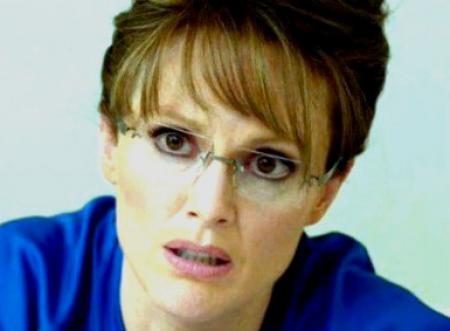Serendip is an independent site partnering with faculty at multiple colleges and universities around the world. Happy exploring!
dear.abby's blog
TV at the Feminst Table?
Over the past month or so I have been posting regularly about a new HBO program which provoked a lot of public attention, long before it even aired. I was interested in the show, and I was even more interested in what people in our course thought about it. But my “call to discourse” fell flat, so I have decided to take up the project myself. Now my primary interest in the show was not actually the topic, but the fact that the creator/director/writer was a female, liberal arts college graduate and only four years older than I am. Go Girls. I am not sure if it is widely understood how rare this is—look up any of your three favorite television programs, and chances are extremely high, regardless of the topic that the “creator/writer/director” of the pilot episode is male. And if you happen to watch a show conceived by a woman, chances are further likely that she has a male partner/co-creator. Shows about Girls, written by girls, created by girls, and directed by girls simply do not exist. The stories we watch and television every day are stories coming from a definitively male perspective. This is not meant as an inciting, insightful statement. It is nothing but and “is”.
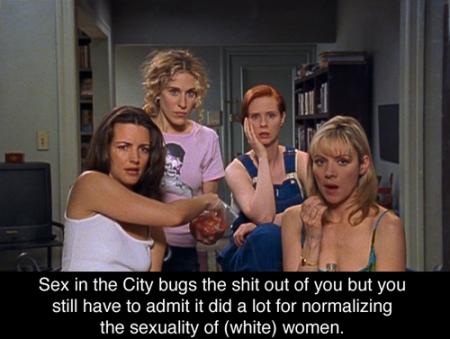
Cosmopolitan Power Feminism and Bad-but-Good Cosmo Girl
I want to explore a text that is considered by mainstream audiences to be a text of female empowerment: Cosmopolitan magazine. I particularly am interested in the way that Cosmopolitan simultaneously instructs/ “empowers” women to reverse the male-female power dynamic through sex and tells them to feel guilty for doing so. The ideal Cosmo girl both objectifies men and feels ashamed of doing so; hence the woman who reverses this dynamic without this requisite guilt is considered shameless and worthy of judgment.
McMahon mentions early on that the magazine rose to prominence as a source of female empowerment (this is not to say it was universally understood as empowering; it was, and is, a controversial text) only after it came under the leadership/editorship of Helen Gurley Brown who at the time (she was editor from 1965-1997) and changed it’s purpose from a periodical of fiction stories to an extended advice column for the single, sexually liberated woman. McMahon does describe Brown as someone considered by Ms and The New York Times (during the 70s and 80s) to be somewhat of a feminist providing “ ‘half a feminist message’ to women who would otherwise have none (New York Times Magazine, 1974)” (McMahon 382): Ms referred to her as “the women’s magazine editor that first admitted that women are sexual too” (July 1985—30th Anniversary Issue). Thus she was considered and for the most-part is considered “somewhat” of a feminist innovator.
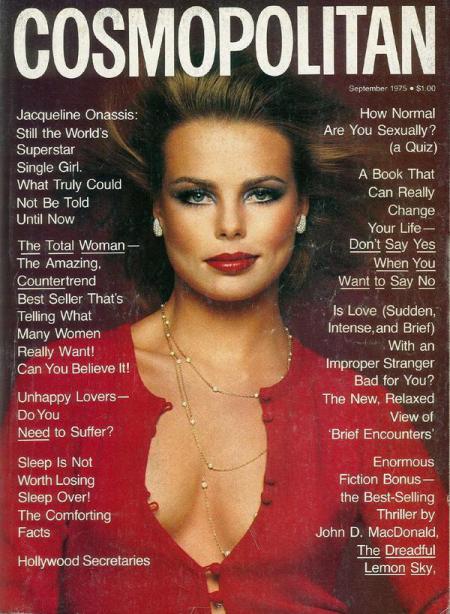
Are We Eliminating or Redefining Limitations?
There are a number of questions that I have worked up which over time have effectively constrained my understanding of the feminist project. I want to connect my concern regarding access to feminism (or limited access and the factors that create this lack) to my understanding of feminism as a minority project—a project that remains beneath the concern of most women both in the US and across the world. I have been thinking about this “majority” since our class conversation about “trolling” comments on Serendip and the consensus that these are not worth a response—that any response would be not productive. So though there are clearly quite a lot of people—including many female-bodied individuals—who would have unconstructive things to say about our work in Critical Feminist Studies. I would even go so far as so say that (as I have encountered them) there are plenty voices of dissent contained within the Bryn Mawr student body.
This conflict between feminism and the “majority” parallels a general lack of consensus and hence momentum within the body of self defined feminists. This lack of commonality really endangers the notion of feminism as a project constantly working towards action/praxis. With so many differing feminisms each accompanied by various agendas, and each a smaller minority of the minority of people that are self identified feminists in the first place, I sincerely start to doubt the potential contained within the feminist project as it is organized today.
mark ruffalo, feminist of the week
so Melissa Silverstein of the blog Hollywood and Women gave actor Mark Ruffalo bonus points for criticising the male centric Academy Award nominations for Best Director:
"I would just like to say to the academy members: why don’t you grow a pair and vote for Lisa Cholodenko as well!".
Lisa Cholodenko co-wrote and singularly directed the film The Kids Are All Right which (inspired by her personal experience) depicts a lesbian couple meeting their anonymous sperm donor when their two (donor fertilized) children are high school age. The film won Best Film Comedy at the Golden Globes, and was nominated for multiple Academy Awards. Though not, of course, the award for Best Director--no female director was nominated. Only three female directors have ever been nominated: Jane Campion for The Piano, Sofia Coppola for Lost in Translation, and Kathryn Bigelow for The Hurt Locker. Bigelow won in 2009. Over 100 males have been nominated during the course of 84 ceremonies. 85 have won.
It is interesting to note that Ruffalo stated that the Academy members needed testicles--implying that only an emasculated Academy would exclude female directors. A female bodied Academy would lack the strength and guts to be radically different.
http://womenandhollywood.com/2011/01/17/hollywood-feminist-of-the-day-mark-ruffalo/
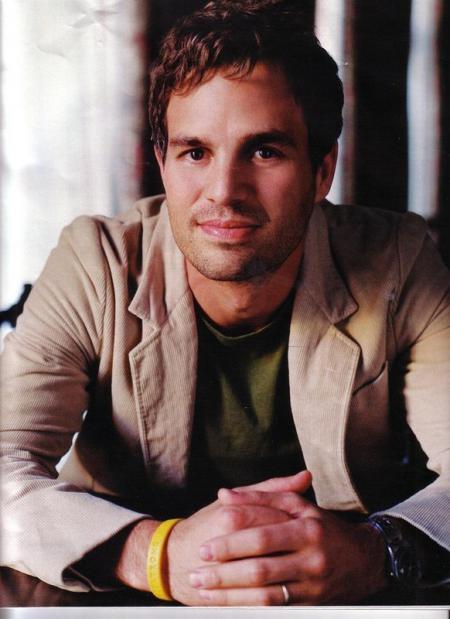
statements about Girls
In the spirit of last week I am going to ignore the oppressive limitations of statement making and attempt to only make statements regarding the new tv show Girls which premiered on HBO last night...
The girls of Girls are all caucasian and 24: they are not girls.
They all live in New York.
They can work unpaid interships.
What is real for one may be terribly unreal for the rest.
Parts of Girls are excruciating to watch.
Girls is created, written, and directed by its female star Lena Dunham.
Lena Dunham is a 25 year old female.
She went to a liberal arts college.
Girls makes statements by asking questions.
Girls is not Sex and the City.
Approximately 10-15% of tv programs that go to pilot are written and created by female writers.
Of those many are written by male-female teams.
Huge, Pretty Little Liars, Being Human, The Killing, Rizzoli and Isles, The Big C. These shows and their pilots were written by female writers.
Girls is a terrible title.
Girls is worth watching.
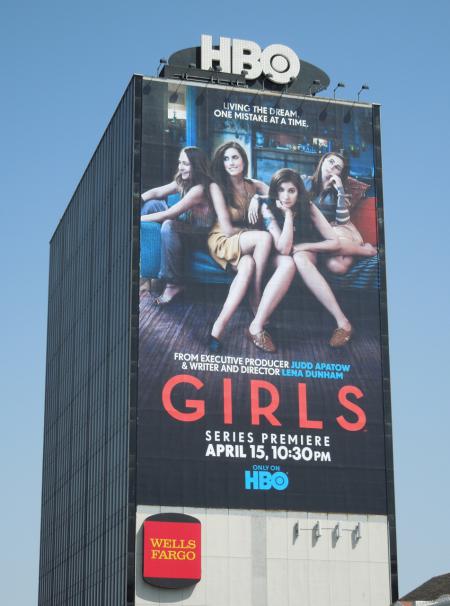
"Ashley Judd, the best person to ever call into Car Talk"
I think Ashley Judd's puffy face! (If you are fortunate enough to not know what this "controversy" is then simply google of "Ashley Judd puffy face".) is nothing if not relevant to our class topic. I think her reaction is novel enough to justify posting not only a link but a direct quote:
"I hope the sharing of my thoughts can generate a new conversation: Why was a puffy face cause for such a conversation in the first place? How, and why, did people participate? If not in the conversation about me, in parallel ones about women in your sphere? What is the gloating about? What is the condemnation about? What is the self-righteous alleged “all knowing” stance of the media about? How does this symbolize constraints on girls and women, and encroach on our right to be simply as we are, at any given moment...
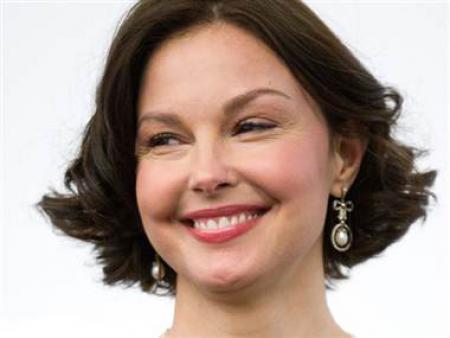
what's wrong with you?
During our brainstorming questioning session about sex work I found myself repeatedly comming back to the same theme: that having "something wrong with you" or "having problems" is an inherent prerequestite of being a sex worker. I think this idea comes up a lot within the media, specifically television or movie portrayals of sex workers, where a character's participation in such "demeaning" work is explained/rationalized via their terrible (read: abusive) childhood or their substance abuse problem. I definitely view Live Girls Unite! as attempting to paint a different/new picture of the sex industry; and while it succeeded in revealing to me a relatively novel image of sex work, it definitely has not erased the more cliche (possibly more realistic) image of sex work as taken up by persons with impaired agency.
reading the comments section
http://www.nymag.com/daily/fashion/2012/03/mom-reacts-vogues-fat-7-year-old-girl-story.html?imw=Y
http://nymag.com/daily/fashion/2012/03/diet-doctors-disapprove-of-dara-lynn-weiss-too.html
This article and the many many subsequent comments has made me think about a part of feminism, or at least my understanding of feminism, that hasn't come up in class so much--the "feminine" body image. This particular article (I never found the original, but only articles about it) concerns the personal response of a mother whose female 7 year old child is considered morbidly obese. Also this article was featured in the annual "shape issue" of Vogue, which may be why it attracted so much attention, and could be tagged easily as "Vogue article about fat seven year old girl" et cetera.
It appears that the overwhelming response to this particular mother's reaction is negative. Most comments cite her as narcissistic and effectively preparing her second grader for a plethora of eating disorders, and passing on her own personal psychosis.
gender terms
So most of the terms that came to mind are associated with gender but arose as points of confusion during a theory class, where everyone used these terms liberally and I felt like I had no idea what they were talking about.
hegemonic : I think I know what this means, it comes up frequently in another gender and sex related class I am in currently.
Focault : now I know who he is and understand his theory, but during a prior feminist class he was intensely alluded to, and I was left very confused.
*queering (as a verb) does this have meaning outside the realm of academia or gender studies. I would like to be able to understand this term enough to use it myself.
*gender vs. sex : the difference between these two terms is still slightly unclear to me, I have definitely used them incorrectly before.
*cisfemale : this term was brought up much earlier this semester by a student, and was briefly explained by professor dalke but I still don't understand why it is used, or what it clarifies that is not clarified by other terms.
Female Politician-Celebrity Standard
Merging the Female Movie Star and the Politician
I invited Sarah Palin to the conversation at our “feminist table” because I thought she and most voices like to hers would be excluded otherwise. I have though about her and other very visible public female personas frequently since then. And I have come to understand these women as part of a separate public world, which must be, in terms of feminism, examined it were a “separate geographical location” entirely. This public world requires a specific examination, just as the woman of the global south or the Korean woman might require examination through a specifically feminist lens or gaze. Others have addressed issues of “double standards” arising in very particular circumstances in very different parts of the globe. The public gaze (constantly directed at this public world) creates a unique combination of “double standards” when it turns towards the female body. I would like to explore the very unique position the public woman finds herself in, both in terms of the political and popular worlds and how these once very separate worlds have come to merge.
